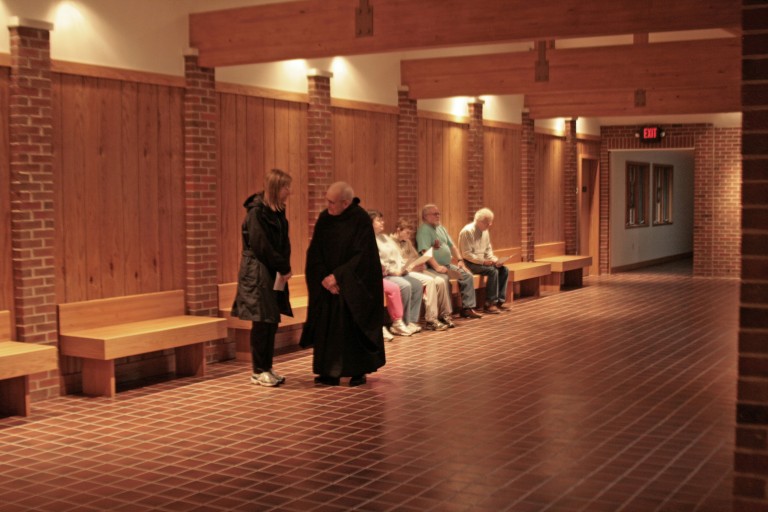Thursday, May 30, 2019
Feeling Lost – Being Found
We all have stories about being lost and found. I remember being anxious on Head Start field trips about losing one of the children. I sometimes have dreams about being terribly lost and being afraid to admit that I am lost, although I usually feel quite detached in my dreams. There are lots of jokes about men who refuse to ask for directions.
There are many ways of being lost. I was reminded of this fact many years ago preparing a sermon for the Second Sunday in Christmas. The scripture readings for that day were all about the lost and forsaken being found and restored (Jeremiah 31:7-14; Ephesians 1:3-6,15-19a; Luke 2:41-52). The reading from Jeremiah is about the exiled remnant of Israel being called home and having God as their father. From Ephesians we learn that, no matter how lost or confused or abandoned we may feel, God chose us long ago — even before we came into being — to be God’s very own. And in the Gospel we have the Holy Family being dispersed and dislocated and then reunited in the House of God.
Of course, these scriptures are about us. Like the church in Ephesus, we might not have realized we were lost until we experienced being found and reconciled. There is another kind of lostness where we know we are lost but can never find our way back on our own. No matter how much we want to find our way back, we keep making wrong turns and getting more and more lost. Even if we desperately want to find our way out, situations can be like an addiction where we become more and more lost until we finally stop trying to find our way out and instead open our lives to simply being found by the One who can truly find us and set us on the right path. Once we admit our powerlessness and our lostness and turn our lives over to God, only then can we really begin to find
our way again.
This is the kind of lostness that is the model for the second form of Reconciliation of a Penitent in the Book of Common Prayer. Among the Gospel writers, St. Luke works with this image more than any of the others. In the fifteenth chapter of Luke, Jesus tells three parables back-to back-to back that are
unique to Luke: the parables of the Lost Sheep, the Lost Coin, and the Lost (Prodigal) Son. Luke is also the only Gospel writer to tell us the story of Jesus being left behind in the Temple, without his parents even realizing it until three days had passed. This, of course, is a different kind of story about being lost and found. On the surface, it’s about a twelve year old boy who was lost and eventually found, but in the exchange at the end between Jesus and his mother, it becomes evident that the “lost” was not Jesus. The boy knows exactly who he is and where he needs to be — in his Father’s House. It’s his parents who have lost him and need the help.
The story is, of course, a foreshadowing: later Jesus and his disciples will make their way to Jerusalem, and the disciples will come away from Jerusalem thinking they have lost Jesus, and still not understanding that they are the ones who are lost. Jesus wasn’t lost on the cross but was going to his Father’s House. In Luke’s Gospel, when Jesus dies he freely offers his spirit back to God: “Father,into your hands I commend my spirit.” He does so willingly and so on the third day those who think they have lost him will find him.It is also only Luke who has the story of the two disciples on their way to Emmaus. These two disciples are going out from Jerusalem thinking they have lost Jesus, but they are the ones who are lost. They are so lost that they don’t even recognize Jesus when he joins them on the road, until he starts explaining scripture and breaking bread. The disciples on the road to Emmaus are us. We are the ones who time and time again, lost on our journey, fail to recognize Jesus when he joins us on the way. But he is the one who is seeking us, and in finding us, redeems the lost and gives us new life. We gather as Christians(explaining scripture and breaking bread) to celebrate the fact that we who were lost have been found.
Prior Aelred - St. Gregory's Abbey
from Abbey Letter Mo. 278
Subscribe to:
Post Comments (Atom)

No comments:
Post a Comment